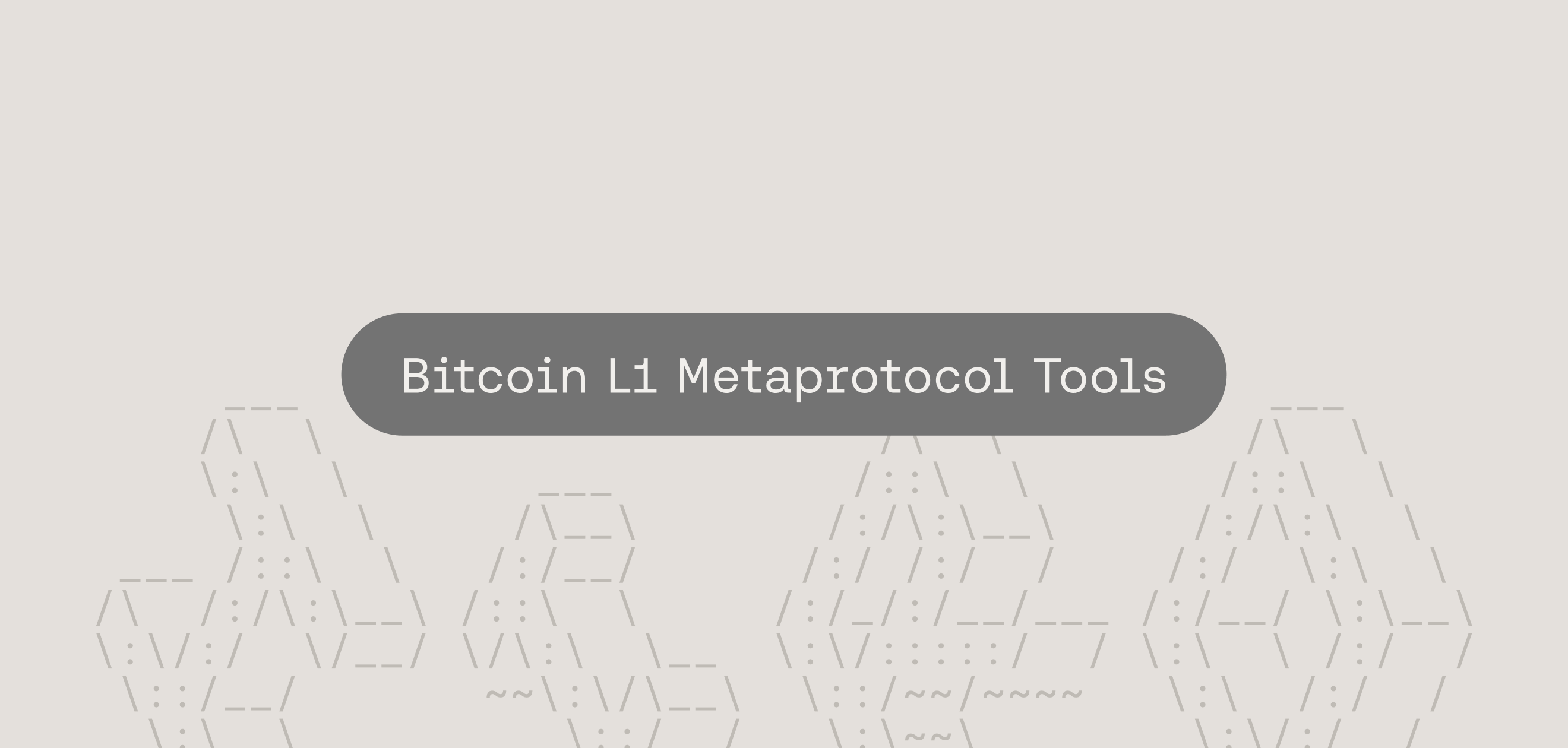For part III of the Stacks Crypto Internet Show’s “How to Build on Bitcoin” series, Bitcoin Frankie, the founder of Bitcoin Besties, introduced co-hosts Patrick Stanley, founder of Freehold, and Muneeb Ali, Stacks co-founder and CEO of Hiro. The hosting duo talked to featured guests Philip De Smedt, founder of Arkadiko, and Matthew Black, co-founder of Atomic Finance, to tackle the topic of “DeFi on the Bitcoin Blockchain.” Listen to the talk in its entirety, or read on for some of the top takeaways.
- DeFi gives us the privacy to communicate with one another using money.
- If you want to build sound infrastructure for sound money, it needs to be built on Bitcoin itself.
- If we have access to the best collateral in the world, why are we sending it to a less secure chain like Ethereum?
- Bitcoin has been stress-tested to last a war time security situation.
- Stacks 2.0 going live opened a world of possibilities. Arkadiko started off as an idea from one conversation, but the idea came to life and evolved into an entire DeFi platform.
Currency = a Form of Communication
Frankie kicked off the conversation about decentralized finance on the Bitcoin blockchain by noting that Bitcoin accounts for roughly half of the crypto space’s trillion-dollar market, and by sharing her thoughts with DeFi on Bitcoin. “Decentralized finance gives us that privacy to communicate with one another using money.”
“But why not Bitcoin, right? The argument that Bitcoin can only handle seven transactions at a time is so outdated,” she continued. “Even according to defiprime.com, they have a total of 220 DeFi projects listed. 205 of those projects are in the Ethereum DeFi ecosystem, 19 are in the EOS DeFi ecosystem, and 26 are in the Bitcoin DeFi ecosystem. So, it is happening y’all.”
Building on Bitcoin
Muneeb also pushed back on the industry belief that Bitcoin is like a rock, and you can’t build on it. He said he’s taken countless meetings where people are looking to Ethereum or next generation blockchains because they’re under the assumption that you can’t have smart contracts on Bitcoin, or that Bitcoin is limited in some other way. “I’m actually very surprised at how much that narrative has taken hold, when the reality is the exact opposite,” he said.
In fact, Atomic Finance began building crosschain on Ethereum and Bitcoin....but then changed tactics. “We were really dismayed at the direction that Ethereum DeFi was going,” said Matt. “So we made the decision last year to go full-in on Bitcoin…if you want to build sound infrastructure for sound money, it needs to be built on Bitcoin itself.”
“We’ve been doing a lot of development specifically with DLCs (Discreet Log Contract), which is a primitive on top of the Bitcoin blockchain itself that allows for the creation of smart contracts and allows for you to create all types of financial contracts, from options to futures. And we’re specifically working on building an easy way for people to make yield on their Bitcoin in a completely transparent and non-custodial manner,” he said.
Leveraging Our Collateral
Philip made an observation about where we’re storing our assets: “Bitcoin is probably one of the best collateral types in the world. It’s very liquid, the markets never close, it settles in like six blocks, which is an hour approximately. It’s super secure, I can transfer it really quickly,” he said.
“And so my case for DeFi on Bitcoin is always if we have access to the best collateral in the world, why the hell are we sending it to a less secure chain... Ethereum or whatever? Why do we wrap it? Why do we send it away?” Philip pointed out that one percent of all Bitcoin lives on Ethereum. “Why do we keep doing that? We give up our best assets to — quite frankly — use them on crappier blockchains. I love Ethereum. I love the innovation on it. But we need to stop doing that, I think, as a whole. If we have this great collateral and access to it, why not leverage it?”
“And so my case for DeFi on Bitcoin is always if we have access to the best collateral in the world, why the hell are we sending it to a less secure chain... Ethereum or whatever? Why do we wrap it? Why do we send it away?” — Philip De Smedt
People want to use Bitcoin so badly that they’re jumping through hoops to use that within smart contracts. “So, I do think that this model is a little upside down right now, where people are trying to issue Bitcoin on other blockchains, and the more logical thing is to bring smart contracts to where the capital already is, where the security operates,” added Muneeb.
" I think, as a whole. If we have this great collateral and access to it, why not leverage it?" — Philip De Smedt
Wartime Security
Ethereum’s developer community is currently the biggest in crypto. And while Muneeb made a point to say that some of those developers are very adept, he argued that Bitcoin has attracted a larger number of extremely sophisticated engineers who give more thought to security, and who understand how to weigh the related trade-offs.
“Because Bitcoin did attract a lot of very sophisticated engineers, you have a very, very solid foundation that is sitting there. Things have been thought through. Imagine if there is an actual wartime scenario where these blockchains are under attack. Which blockchain are you going to feel comfortable storing all of your assets and life savings in?” he posed. “I’ll put that in Bitcoin and I will feel like that’s fine. A lot of these other systems have never actually seen a wartime scenario where someone is actively trying to compromise the integrity of the system, and the kind of problems that can emerge. In Bitcoin, it has been stress-tested. It has that skill set.”
The Value of Half-Baked Ideas
When discussing a tweak Arkadiko made to its transaction process*, Philip gave props to Ali, saying “to be quite honest, Muneeb, you gave us that idea. I never thanked you for that, but it was genius in retrospect.”
To Muneeb, it brought up an interesting point: “That’s awesome to hear. I feel like I need to do more of that. There’s so much potential here, and sometimes the bottleneck is telling people about it,” he said.
“I think on our side, we’re a bunch of computer scientists, and our first reaction is to not release something until we have fixed all the holes. We don’t feel very uncomfortable — me included — to publicly release something that we don’t think we’ve done a thorough enough job at. And in some ways, the opposite is the way to go in crypto,” Muneeb argued.
“The idea you’re talking about was a half-baked type of an idea. But we put it out there, and before you know it, Arkadiko is working on it. We need to do more of that. We need to focus. The thing I’m taking a lot more seriously now, especially with Stacks 2.0 live, is that instead of going heads-down more on the technology, we need to be more vocal and say ‘here are the different things that are possible.’ Maybe some of the ideas are half-baked, but that’s fine. There’s so many smart people in the Bitcoin ecosystem who can take that and run with it, and maybe improve it.”
* The Arkadiko smart contract would temporarily hold the stablecoin until the bitcoin is paid back (or in case of non-payment, the stablecoin is sent to the lender). This is one of the first trustless non-custodian bitcoin lending/borrowing applications that is possible without bitcoin leaving the bitcoin blockchain, thanks to the ability for Clarity smart contracts to read bitcoin state.







